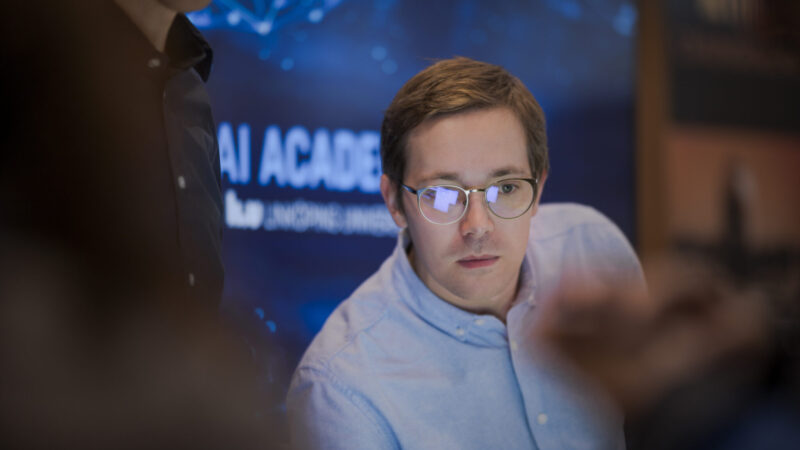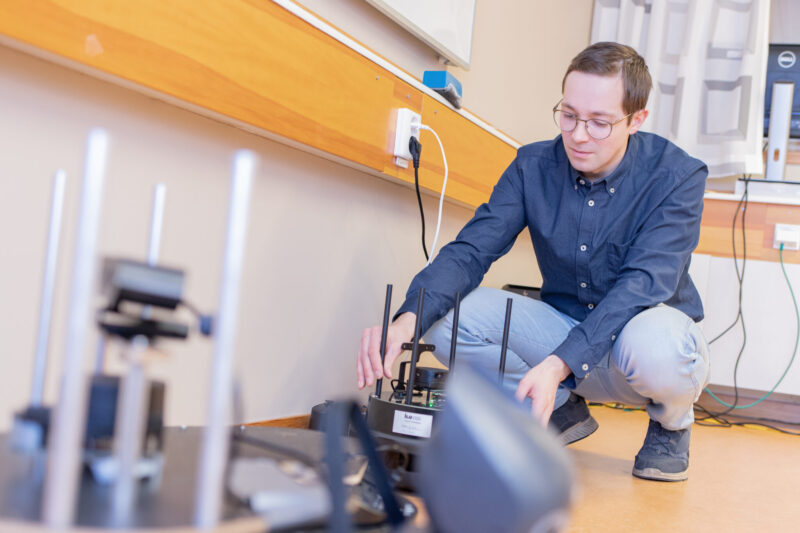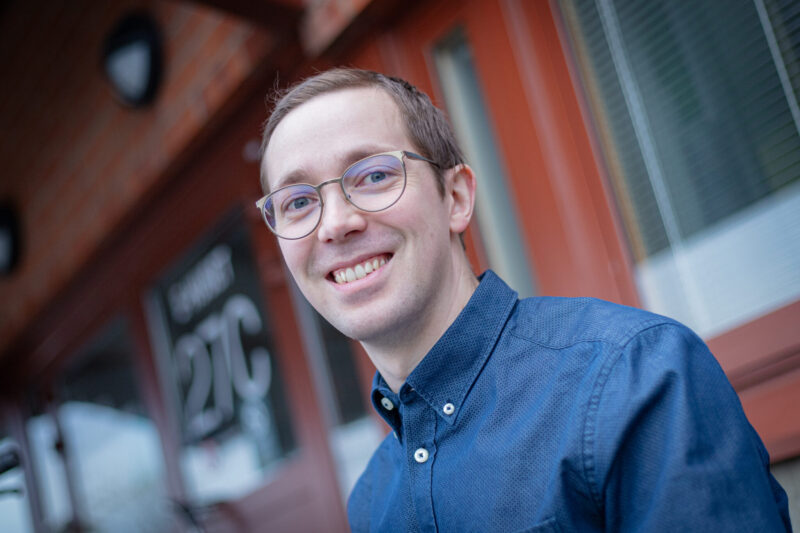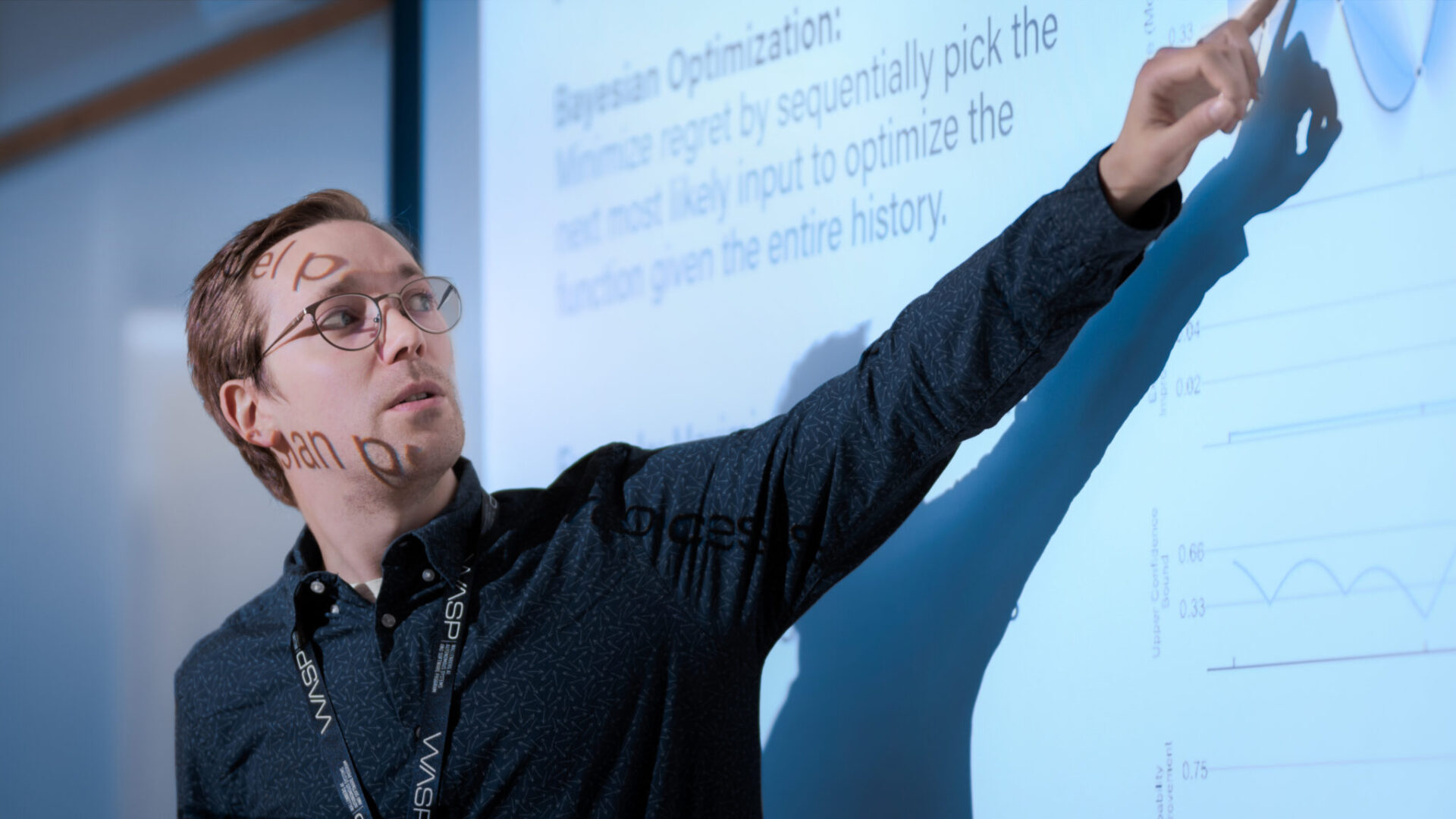What inspires someone to dive deep into the world of artificial intelligence and autonomous systems? For Mattias Tiger, postdoc at Linköping University and WASP alumni, it was the realization that AI could be the key to solving a multitude of problems.
Mattias Tiger has been part of the WASP community since its beginning. His research centres on autonomous systems and artificial intelligence, with a strong emphasis on safety. His journey into AI began when he took a course in Artificial Intelligence, it spoke to him and his broad range of interests.
“I realized that I did not want to specialize in solving one problem,” he said. “I wanted to specialize in the tools solving all problems. Which is basically the promise of AI.”
Mattias began his studies in Computer Science and Engineering at Linköping University in 2008. After taking a PhD course as an undergraduate student on machine learning, led by Professor Thomas Schön, he became increasingly interested in machine learning. In 2016, he became a WASP PhD student, marking the start of a long and successful career in academia.

Mattias Tiger at the WASP Academia and Industry Days 2022. Photo: Peter Karlsson/Svarteld.
Robust and resilient autonomous systems
To solve diverse problems, AI needs to manage real-world environments safely and effectively, which is where Mattias’ research shines.
“Close to my heart are autonomous systems,” says Mattias. “How can we realize intelligent agents that can manage real-world environments in a way that is both safe and effective?”
His research investigates how robots can learn, “using robust, grounded machine learning models to explicitly define how the robot is expected to behave when it executes a plan,” says Mattias. “This allows the autonomous systems to monitor whether, during execution, the robot is actually behaving as expected.”
His work involves formal reasoning, planning, sequential decision-making, adaptation, and leveraging learning to improve effectiveness.
“I look at how to systematically monitor what the model assumes and use these assumptions as data to teach models to be more effective,” Mattias continues.
Mattias investigates a wide range of AI methods: effective and safe motion planning, how to robustly model trajectory patterns, anomaly detection, and monitoring to ensure precise control over assumptions. His approach integrates probability theory, machine learning, and logical formal reasoning to build safe, self-aware autonomous systems.
“We know that the world is changing, so we need systems that self-monitor and react when things are no longer as we assumed they were going to be,” he explains.

Photo: Charlotte Perhammar
The future of AI
This changing world involves major steps forward for robotization and the maturing of autonomous technology, Mattias believes.
“We are going to see service robots and drones for important delivery and surveillance tasks. We will be better at understanding how our infrastructure is used, finding bottlenecks in traffic, finding invasive species, seeing where we are leaking heat from buildings – all this only a few years away,” he predicts.
With this deployment of new technologies should come improved safety practices. Mattias notes a current gap between research and industry, particularly in using large language models for autonomous decision-making.
“Large language models are great for a lot of things, but they are not suitable to make decisions autonomously. As of now, humans must always verify the output,” Mattias explains. His work helps pinpoint when and where to apply that human decision-making.
On the international stage
Mattias received international recognition from EurAI in 2024 for his doctoral thesis on safety-aware autonomous systems.
In part, his work is unusual for its breadth – most doctoral work is very narrow and specific.
“I did something that is not common where I looked at several subfields of AI – three areas in this case. I made contributions in all three, both individually and collectively, demonstrating how you can integrate them in a way that makes the whole much more than the individual parts,” explains Mattias.
“This opens the possibilities of what you can do using these components. I showed one way to realize safety-aware autonomous systems,” he concludes.
This summarizes Mattias quite well; he looks at the big picture and strives to put the pieces together. His work not only advances the field of AI but also ensures that these technologies can be trusted and relied upon in real-world applications.

Mattias Tiger. Photo: Charlotte Perhammar
From the first days of WASP
Mattias started his PhD as one of the very first doctoral students with WASP in 2016.
“Since we were in the first batch, everything was new and we got to try out different things”, says Mattias. “I was happy I got to be a part of it.”
Since his early days in the program, Mattias has been involved in several WASP activities, including the research arena WARA Public Safety (WARA PS).
“Being part of WARA PS enriched my experience in WASP as well as my PhD studies. A collaborative project in the WASP project course resulted in a good publication in a flagship conference. It also sent me down a very rewarding research path and became formative for my PhD. Find some like-minded PhD students with diverse skill sets and take a leap – only the sky is the limit!”
Mattias activities in WARA PS later led him to work part-time for Saab Regnskogen – Saab’s internal start-up.
Next step
After completing his PhD, Mattias remained at Linköping University as a postdoctoral researcher.
“I really enjoy being in this environment; it gives me such freedom to learn more and try new things, Aside from his postdoc, I drive my own AI companies which is very rewarding,“ he says.
Today, Mattias is involved with the Reasoning and Learning Lab (ReaL), led by Fredrik Heintz. ReaL is a group of AI researchers working with AI, autonomous systems, as well as the host for LiU’s AI Academy – a space for students to build and test AI systems and robots.
“We’ve done a lot of collaborative projects with partners and organisations to help them make the best use of AI and understand how to deploy trustworthy versions of AI technology that meet real-world requirements,” says Mattias.
As Mattias nears the end of his postdoctoral period, his research in AI and autonomous systems continues to make a lasting impact. With an impressive academic career already behind him, it will be interesting to see what new challenges and opportunities lie ahead.
This article is part of the “WASP 10 Years” series, celebrating a decade of WASP’s significant impact on society.
Published: May 23rd, 2025
[addtoany]


